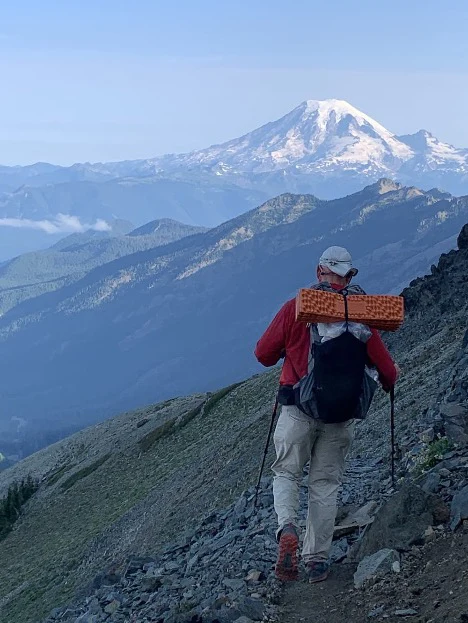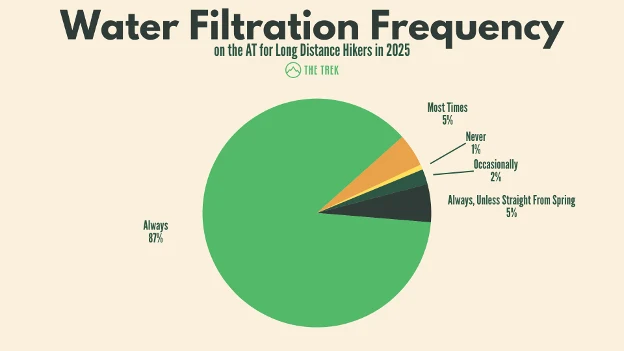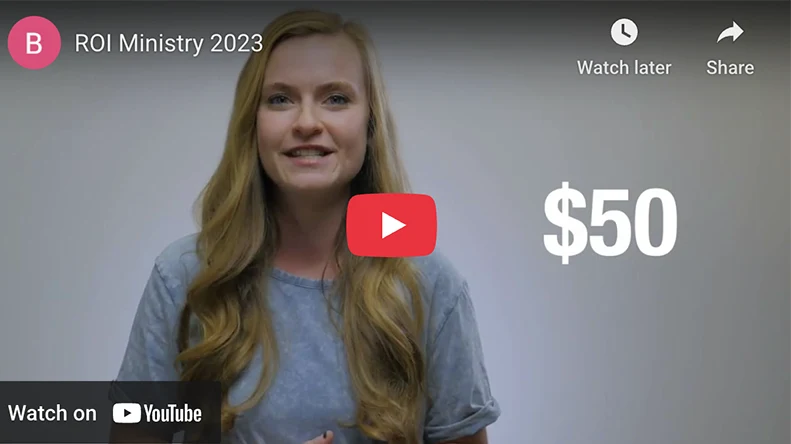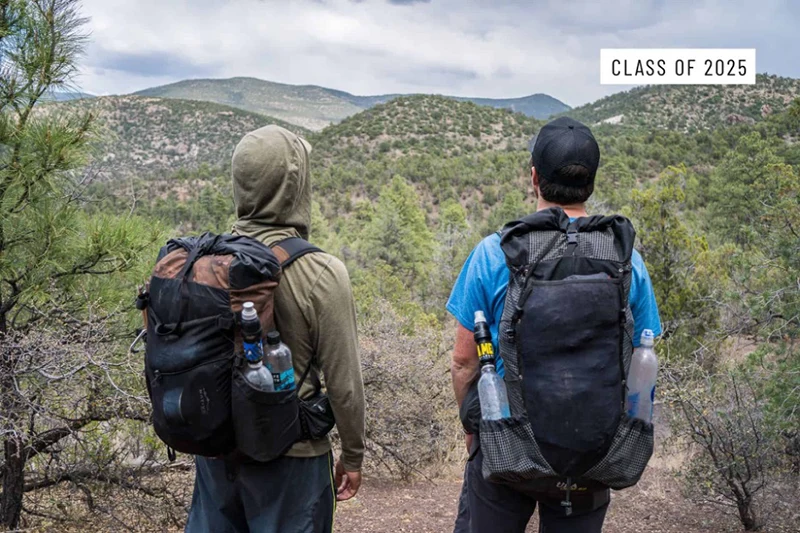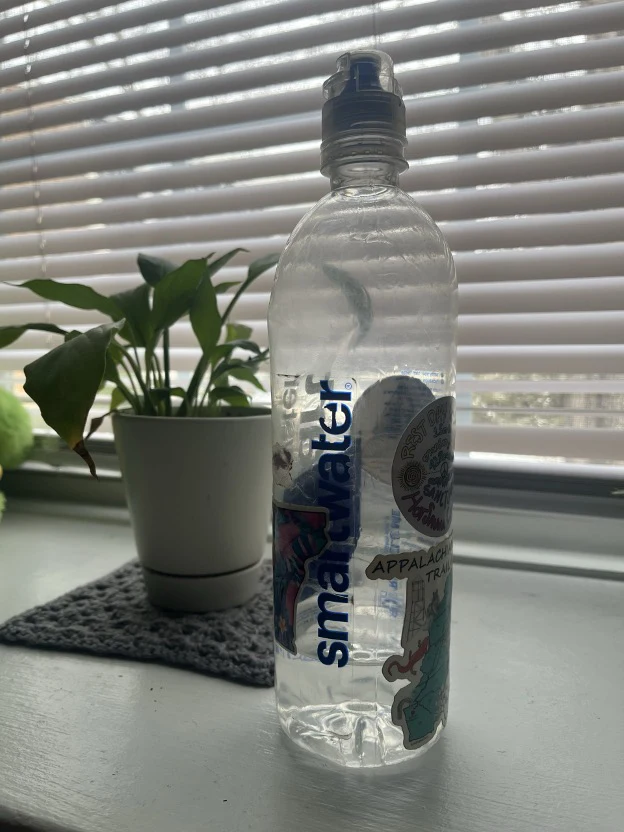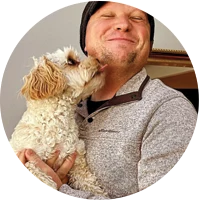Rediscovering Roots: What Visiting Vietnam Taught Me About Family and Identity
Rediscovering Roots: What Visiting Vietnam Taught Me About Family and Identity

Rediscovering Roots: What Visiting Vietnam Taught Me About Family and Identity
YouTube video highlight
The question seems simple enough: "Where are you from?" For Joanna, the truth is a bit more complicated.
Read more about the project
The question seems simple enough: "Where are you from?" My answer "Philadelphia" never satisfies. The inevitable follow up comes: "No, where are you really from?" or "Where are your parents from?"
I've rehearsed my response countless times: "I was born and raised in Philly, but my parents were born in Vietnam."
And then comes the assumption: "So you're Vietnamese."
The truth is more complex.
My family is part of the Chinese Vietnamese community from District 5, now Ho Chi Minh City's Chinatown. My parents speak both Vietnamese and Cantonese, while I only speak Cantonese. My entire life has been a dance between identities.
Vietnamese people see us as Chinese, while others categorize us as Vietnamese.
I once took a DNA test hoping for clarity. The results? 100% Chinese. I've settled on Chinese Vietnamese American as my identity, a cultural blend that reflects our mixed customs and traditions. It's taken me years to understand that we don't need to be boxed into a single category.

Returning to a Forgotten Homeland
My last visit to Ho Chi Minh City was 14 years ago. Those memories consist mostly of uncomfortable flashes: oppressive humidity, relentless mosquito bites, debilitating food poisoning, and the isolation of not speaking Vietnamese. Needless to say, I wasn't thrilled about returning.
But this trip was different. With my husband joining us, my parents eagerly showed him and by extension, me the house and neighborhoods they grew up in. We met their childhood friends still living on the same streets.
We sampled the street foods, coffee, sugarcane juice, and smoothies that shaped their daily lives.


Maybe it's because I'm older now, or perhaps because I was seeing it through my husband's fresh perspective, but this time I could truly imagine what my parents' lives had been like and what mine might have been.
The Path Not Taken
Before becoming refugees, my parents and three older brothers sold Chinese Vietnamese desserts from a small cart in their neighborhood. What forced them to leave wasn't the Vietnam War itself, but its aftermath. When South Vietnam fell in 1975, the country became communist, a political system that wasn't in place before the war.
My parents often tell me how dramatically life changed under communist rule.
The new communist government strictly controlled food distribution, allowing civilians only small rations that were barely enough to survive. My parents described long lines for meager portions of rice and how the government dictated exactly how much food each family could receive. For entrepreneurs like my parents who valued freedom and self-determination, this control was unbearable.

Our family's journey to America began with my uncle, my father's youngest brother. At just 23 years old, he risked his life escaping Vietnam by boat, a perilous journey that many didn't survive. He made it to the United States and, through his courage and determination, was able to sponsor my parents and brothers as refugees.
His brave decision opened the door for our entire family's new life.
In 1986, my parents and brothers followed a different path to freedom, first reaching Thailand as refugees, then moving to the Philippines while waiting for approval to enter the United States. Finally, in 1987, they arrived in America as refugees, beginning a new chapter of their lives thanks to my uncle's sponsorship.

Education would have been a luxury I likely couldn't afford had we remained. My parents only attended school until third grade before poverty forced them to work and support their siblings. After meeting and starting their family, they had three sons who also helped with the family business from an extremely young age.
I can't begin to imagine what they endured during that journey. I was the fortunate one born in the United States, spared from experiencing the hardships they knew under communist rule and during their escape.
Finding Gratitude in Heritage
Walking the streets where my parents once pushed their dessert cart, I felt a profound connection to their story.
The humid air, the bustling markets, the sounds of street vendors, these sensory experiences helped me understand parts of my identity that had always felt distant.
Through this journey, I discovered the extraordinary resilience and strength that runs through my family. I finally understood why my parents speak with such deep appreciation and pride for the United States. It was the country that offered them refuge and opportunity when they had nothing.

My parents and I at the iconic Saigon Central Post Office. They used to bring my brothers here for picnics, but surprisingly, it was my mom’s first time stepping inside!
But I also gained appreciation for the Vietnamese cultural influences that have subtly shaped our family traditions. The way we celebrate holidays, our approach to family gatherings, even certain phrases my parents use all carry echoes of their life in Vietnam. Growing up, little pieces of Vietnam were always around me, though I didn't recognize them. When we wanted ice cream, we'd say 'cà rem' - a word I always thought was Cantonese.
It wasn't until years later that I realized my parents had been sprinkling Vietnamese words into our lives all along, these small fragments of language carrying pieces of their history and connecting me to a homeland I never knew I shared.

Standing in District 5, watching my parents reconnect with childhood friends and seeing the joy on their faces as they shared stories, I realized something important: my identity isn't about choosing between being Chinese, Vietnamese, or American. It's about embracing the unique blend of all three that makes our family story special.

My parents recently shared something that surprised me. After spending most of their lives in America, they feel more connected to the U.S. than to Vietnam. "This is our home now," they told me. Yet watching them navigate the streets of their childhood with such familiarity made me realize that Vietnam will always be part of who they are and by extension, part of who I am.

Over the years, spending time outdoors has become a grounding force in my life. It is a way to reconnect not just with nature, but with myself. Backpacking through remote landscapes, hiking along quiet trails, and filtering water from mountain streams using my Sawyer Squeeze has helped me build a sense of resilience. That same strength is what I now recognize in my parents’ story. My family never had the privilege of exploring the outdoors for fun. For them, survival came first. But for me, being outside has become a space to reflect, to process where I come from, and to better understand who I am becoming. In those wide open spaces, I find peace and perspective. I carry their story with me every step of the way.

This trip made me realize that identity isn’t about choosing one label over another. I am a product of my family’s journey, their struggles, and their sacrifices. I carry the traditions of our Chinese ancestors, the cultural imprint of Vietnam, and the opportunities given to me as an American.
I came back from Vietnam not just with stories, but with a deeper appreciation for where I come from—no matter how complicated the answer to that question may be.

Rediscovering Roots: What Visiting Vietnam Taught Me About Family and Identity



The question seems simple enough: "Where are you from?" My answer "Philadelphia" never satisfies. The inevitable follow up comes: "No, where are you really from?" or "Where are your parents from?"
I've rehearsed my response countless times: "I was born and raised in Philly, but my parents were born in Vietnam."
And then comes the assumption: "So you're Vietnamese."
The truth is more complex.
My family is part of the Chinese Vietnamese community from District 5, now Ho Chi Minh City's Chinatown. My parents speak both Vietnamese and Cantonese, while I only speak Cantonese. My entire life has been a dance between identities.
Vietnamese people see us as Chinese, while others categorize us as Vietnamese.
I once took a DNA test hoping for clarity. The results? 100% Chinese. I've settled on Chinese Vietnamese American as my identity, a cultural blend that reflects our mixed customs and traditions. It's taken me years to understand that we don't need to be boxed into a single category.

Returning to a Forgotten Homeland
My last visit to Ho Chi Minh City was 14 years ago. Those memories consist mostly of uncomfortable flashes: oppressive humidity, relentless mosquito bites, debilitating food poisoning, and the isolation of not speaking Vietnamese. Needless to say, I wasn't thrilled about returning.
But this trip was different. With my husband joining us, my parents eagerly showed him and by extension, me the house and neighborhoods they grew up in. We met their childhood friends still living on the same streets.
We sampled the street foods, coffee, sugarcane juice, and smoothies that shaped their daily lives.


Maybe it's because I'm older now, or perhaps because I was seeing it through my husband's fresh perspective, but this time I could truly imagine what my parents' lives had been like and what mine might have been.
The Path Not Taken
Before becoming refugees, my parents and three older brothers sold Chinese Vietnamese desserts from a small cart in their neighborhood. What forced them to leave wasn't the Vietnam War itself, but its aftermath. When South Vietnam fell in 1975, the country became communist, a political system that wasn't in place before the war.
My parents often tell me how dramatically life changed under communist rule.
The new communist government strictly controlled food distribution, allowing civilians only small rations that were barely enough to survive. My parents described long lines for meager portions of rice and how the government dictated exactly how much food each family could receive. For entrepreneurs like my parents who valued freedom and self-determination, this control was unbearable.

Our family's journey to America began with my uncle, my father's youngest brother. At just 23 years old, he risked his life escaping Vietnam by boat, a perilous journey that many didn't survive. He made it to the United States and, through his courage and determination, was able to sponsor my parents and brothers as refugees.
His brave decision opened the door for our entire family's new life.
In 1986, my parents and brothers followed a different path to freedom, first reaching Thailand as refugees, then moving to the Philippines while waiting for approval to enter the United States. Finally, in 1987, they arrived in America as refugees, beginning a new chapter of their lives thanks to my uncle's sponsorship.

Education would have been a luxury I likely couldn't afford had we remained. My parents only attended school until third grade before poverty forced them to work and support their siblings. After meeting and starting their family, they had three sons who also helped with the family business from an extremely young age.
I can't begin to imagine what they endured during that journey. I was the fortunate one born in the United States, spared from experiencing the hardships they knew under communist rule and during their escape.
Finding Gratitude in Heritage
Walking the streets where my parents once pushed their dessert cart, I felt a profound connection to their story.
The humid air, the bustling markets, the sounds of street vendors, these sensory experiences helped me understand parts of my identity that had always felt distant.
Through this journey, I discovered the extraordinary resilience and strength that runs through my family. I finally understood why my parents speak with such deep appreciation and pride for the United States. It was the country that offered them refuge and opportunity when they had nothing.

My parents and I at the iconic Saigon Central Post Office. They used to bring my brothers here for picnics, but surprisingly, it was my mom’s first time stepping inside!
But I also gained appreciation for the Vietnamese cultural influences that have subtly shaped our family traditions. The way we celebrate holidays, our approach to family gatherings, even certain phrases my parents use all carry echoes of their life in Vietnam. Growing up, little pieces of Vietnam were always around me, though I didn't recognize them. When we wanted ice cream, we'd say 'cà rem' - a word I always thought was Cantonese.
It wasn't until years later that I realized my parents had been sprinkling Vietnamese words into our lives all along, these small fragments of language carrying pieces of their history and connecting me to a homeland I never knew I shared.

Standing in District 5, watching my parents reconnect with childhood friends and seeing the joy on their faces as they shared stories, I realized something important: my identity isn't about choosing between being Chinese, Vietnamese, or American. It's about embracing the unique blend of all three that makes our family story special.

My parents recently shared something that surprised me. After spending most of their lives in America, they feel more connected to the U.S. than to Vietnam. "This is our home now," they told me. Yet watching them navigate the streets of their childhood with such familiarity made me realize that Vietnam will always be part of who they are and by extension, part of who I am.

Over the years, spending time outdoors has become a grounding force in my life. It is a way to reconnect not just with nature, but with myself. Backpacking through remote landscapes, hiking along quiet trails, and filtering water from mountain streams using my Sawyer Squeeze has helped me build a sense of resilience. That same strength is what I now recognize in my parents’ story. My family never had the privilege of exploring the outdoors for fun. For them, survival came first. But for me, being outside has become a space to reflect, to process where I come from, and to better understand who I am becoming. In those wide open spaces, I find peace and perspective. I carry their story with me every step of the way.

This trip made me realize that identity isn’t about choosing one label over another. I am a product of my family’s journey, their struggles, and their sacrifices. I carry the traditions of our Chinese ancestors, the cultural imprint of Vietnam, and the opportunities given to me as an American.
I came back from Vietnam not just with stories, but with a deeper appreciation for where I come from—no matter how complicated the answer to that question may be.

Rediscovering Roots: What Visiting Vietnam Taught Me About Family and Identity



The question seems simple enough: "Where are you from?" My answer "Philadelphia" never satisfies. The inevitable follow up comes: "No, where are you really from?" or "Where are your parents from?"
I've rehearsed my response countless times: "I was born and raised in Philly, but my parents were born in Vietnam."
And then comes the assumption: "So you're Vietnamese."
The truth is more complex.
My family is part of the Chinese Vietnamese community from District 5, now Ho Chi Minh City's Chinatown. My parents speak both Vietnamese and Cantonese, while I only speak Cantonese. My entire life has been a dance between identities.
Vietnamese people see us as Chinese, while others categorize us as Vietnamese.
I once took a DNA test hoping for clarity. The results? 100% Chinese. I've settled on Chinese Vietnamese American as my identity, a cultural blend that reflects our mixed customs and traditions. It's taken me years to understand that we don't need to be boxed into a single category.

Returning to a Forgotten Homeland
My last visit to Ho Chi Minh City was 14 years ago. Those memories consist mostly of uncomfortable flashes: oppressive humidity, relentless mosquito bites, debilitating food poisoning, and the isolation of not speaking Vietnamese. Needless to say, I wasn't thrilled about returning.
But this trip was different. With my husband joining us, my parents eagerly showed him and by extension, me the house and neighborhoods they grew up in. We met their childhood friends still living on the same streets.
We sampled the street foods, coffee, sugarcane juice, and smoothies that shaped their daily lives.


Maybe it's because I'm older now, or perhaps because I was seeing it through my husband's fresh perspective, but this time I could truly imagine what my parents' lives had been like and what mine might have been.
The Path Not Taken
Before becoming refugees, my parents and three older brothers sold Chinese Vietnamese desserts from a small cart in their neighborhood. What forced them to leave wasn't the Vietnam War itself, but its aftermath. When South Vietnam fell in 1975, the country became communist, a political system that wasn't in place before the war.
My parents often tell me how dramatically life changed under communist rule.
The new communist government strictly controlled food distribution, allowing civilians only small rations that were barely enough to survive. My parents described long lines for meager portions of rice and how the government dictated exactly how much food each family could receive. For entrepreneurs like my parents who valued freedom and self-determination, this control was unbearable.

Our family's journey to America began with my uncle, my father's youngest brother. At just 23 years old, he risked his life escaping Vietnam by boat, a perilous journey that many didn't survive. He made it to the United States and, through his courage and determination, was able to sponsor my parents and brothers as refugees.
His brave decision opened the door for our entire family's new life.
In 1986, my parents and brothers followed a different path to freedom, first reaching Thailand as refugees, then moving to the Philippines while waiting for approval to enter the United States. Finally, in 1987, they arrived in America as refugees, beginning a new chapter of their lives thanks to my uncle's sponsorship.

Education would have been a luxury I likely couldn't afford had we remained. My parents only attended school until third grade before poverty forced them to work and support their siblings. After meeting and starting their family, they had three sons who also helped with the family business from an extremely young age.
I can't begin to imagine what they endured during that journey. I was the fortunate one born in the United States, spared from experiencing the hardships they knew under communist rule and during their escape.
Finding Gratitude in Heritage
Walking the streets where my parents once pushed their dessert cart, I felt a profound connection to their story.
The humid air, the bustling markets, the sounds of street vendors, these sensory experiences helped me understand parts of my identity that had always felt distant.
Through this journey, I discovered the extraordinary resilience and strength that runs through my family. I finally understood why my parents speak with such deep appreciation and pride for the United States. It was the country that offered them refuge and opportunity when they had nothing.

My parents and I at the iconic Saigon Central Post Office. They used to bring my brothers here for picnics, but surprisingly, it was my mom’s first time stepping inside!
But I also gained appreciation for the Vietnamese cultural influences that have subtly shaped our family traditions. The way we celebrate holidays, our approach to family gatherings, even certain phrases my parents use all carry echoes of their life in Vietnam. Growing up, little pieces of Vietnam were always around me, though I didn't recognize them. When we wanted ice cream, we'd say 'cà rem' - a word I always thought was Cantonese.
It wasn't until years later that I realized my parents had been sprinkling Vietnamese words into our lives all along, these small fragments of language carrying pieces of their history and connecting me to a homeland I never knew I shared.

Standing in District 5, watching my parents reconnect with childhood friends and seeing the joy on their faces as they shared stories, I realized something important: my identity isn't about choosing between being Chinese, Vietnamese, or American. It's about embracing the unique blend of all three that makes our family story special.

My parents recently shared something that surprised me. After spending most of their lives in America, they feel more connected to the U.S. than to Vietnam. "This is our home now," they told me. Yet watching them navigate the streets of their childhood with such familiarity made me realize that Vietnam will always be part of who they are and by extension, part of who I am.

Over the years, spending time outdoors has become a grounding force in my life. It is a way to reconnect not just with nature, but with myself. Backpacking through remote landscapes, hiking along quiet trails, and filtering water from mountain streams using my Sawyer Squeeze has helped me build a sense of resilience. That same strength is what I now recognize in my parents’ story. My family never had the privilege of exploring the outdoors for fun. For them, survival came first. But for me, being outside has become a space to reflect, to process where I come from, and to better understand who I am becoming. In those wide open spaces, I find peace and perspective. I carry their story with me every step of the way.

This trip made me realize that identity isn’t about choosing one label over another. I am a product of my family’s journey, their struggles, and their sacrifices. I carry the traditions of our Chinese ancestors, the cultural imprint of Vietnam, and the opportunities given to me as an American.
I came back from Vietnam not just with stories, but with a deeper appreciation for where I come from—no matter how complicated the answer to that question may be.







